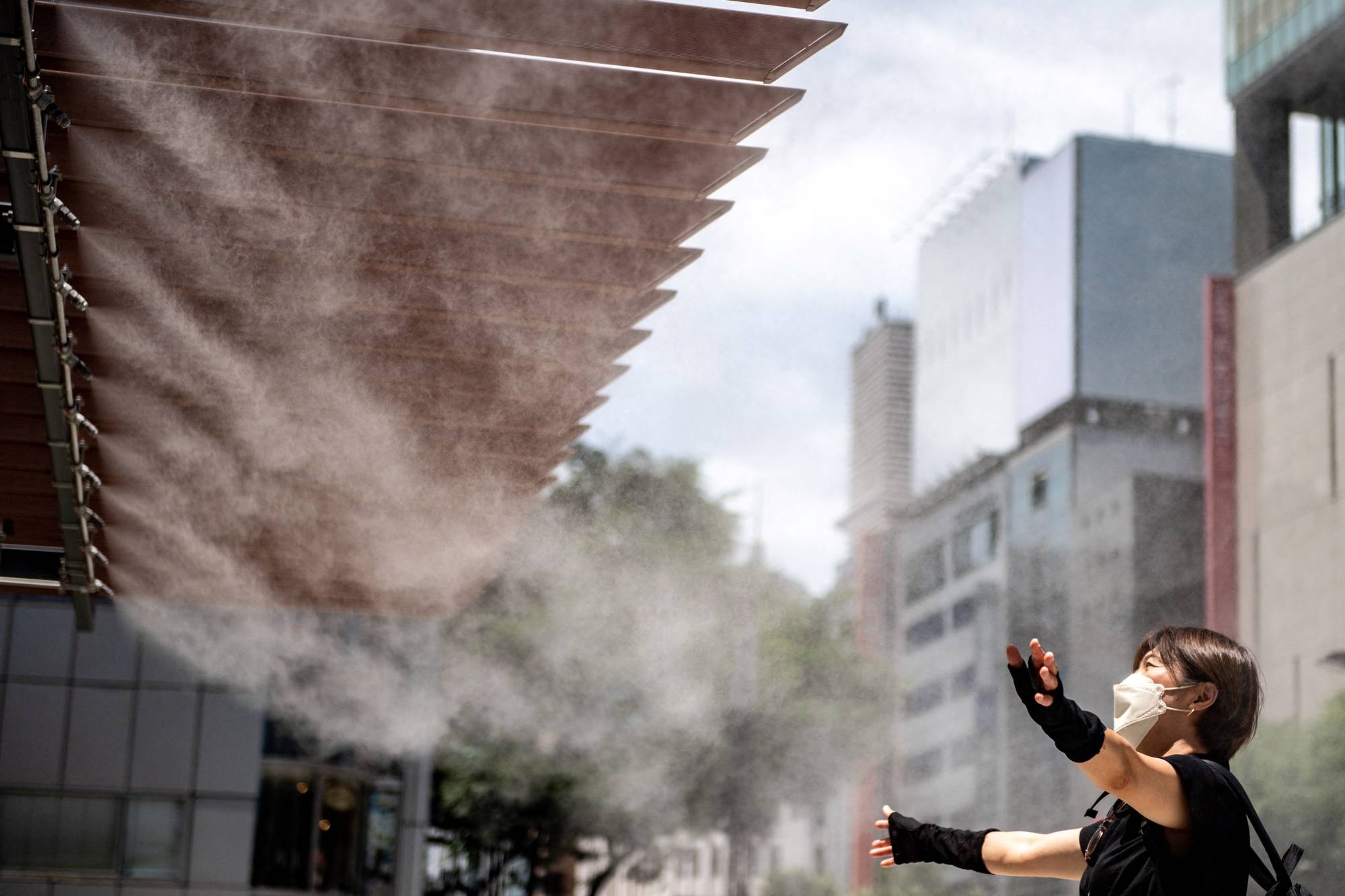Japan issues first 'energy shortage warning' amid soaring temperatures
Pedestrians walk on a street in Tokyo's Ginza district amid soaring temperatures on Sunday. | AFP-JIJI
The central government on Sunday issued an “electricity supply shortage warning” for the first time ever under a new system, saying that the Tokyo area was expected to suffer a shortage Monday afternoon as temperatures in the Kanto region were likely to remain high.
The government asked people to make efforts to save electricity, particularly between 3 p.m. and 6 p.m. Monday, including switching off unnecessary lights while also taking measures to prevent heatstroke.
The newly created warning system was devised to warn residents a day before any potential energy shortage, early enough to give them time to make preparations.
The government issued an “electricity shortage alert” for the first time in March following a major earthquake, which damaged thermal power plants. However, it was criticized as being too late, as it was issued at night before the day the shortage was expected.
The mercury rose above 36 degrees Celsius in parts of Tokyo, Saitama, Tochigi and Ibaraki prefectures earlier Sunday, just a day after Japan saw its highest-ever temperature in June.
Temperatures rose above the country’s “extreme heat” threshold of 35 C in a number of areas on Sunday, hitting 36.8 C in both Sano, Tochigi Prefecture, and Isesaki, Gunma Prefecture, and 36.4 C in Koshigaya and Kumagaya in Saitama Prefecture. Tokyo’s Nerima Ward also posted a 36.4 C high. The mercury also rose to 36.3 C in the town of Daigo, Ibaraki Prefecture, and 36.2 C in Tokyo’s Chiyoda Ward.
The sweltering temperatures in many areas prompted growing concern over heatstroke cases.
A 94-year-old man died Saturday evening after he was found unconscious at his home in Kawagoe, Saitama Prefecture. The man, whose home did not have air conditioning, was rushed to a hospital on suspicion of heatstroke but was later confirmed dead.
A woman cools down in front of sprinklers in Tokyo’s Ginza district on Sunday. | AFP-JIJI
On Saturday, temperatures climbed in Tokyo and the surrounding areas, with Isesaki in Gunma Prefecture registering 40.2 C, a national record for June, the Meteorological Agency said. Temperatures in central Tokyo the same day also set a record for the earliest date in June that they had exceeded 35 C since observations began in 1875.
The heat wave gripping much of the country is expected to continue through the end of this month.
“I’m afraid of the weather turning even hotter once the rainy season ends. Also, it’s a pain to wear a mask” in hot weather as an anti-coronavirus measure, said 74-year-old Tsuneko Morita as she visited a department store in Kumagaya, where the temperature Saturday rose as high as 38.4 C during the day.
Koya Obata, who brought his 6-year-old son to play at a children’s park in Maebashi, where temperatures soared to 39.5 C, expressed doubts that he would be able to heed calls to conserve power given the heat.
“I can’t do without air conditioning. It’s impossible to save electricity,” the 40-year-old said.
Nationwide, more than 470 observation stations out of a total of 914 recorded temperatures of 30 C or over on Saturday, with more than 60 recording temperatures of 35 C or above, the highest numbers this year.
People seek relief from soaring temperatures under a spray of mist at Kumagaya Station on Saturday afternoon in Kumagaya, Saitama Prefecture. | KYODO









